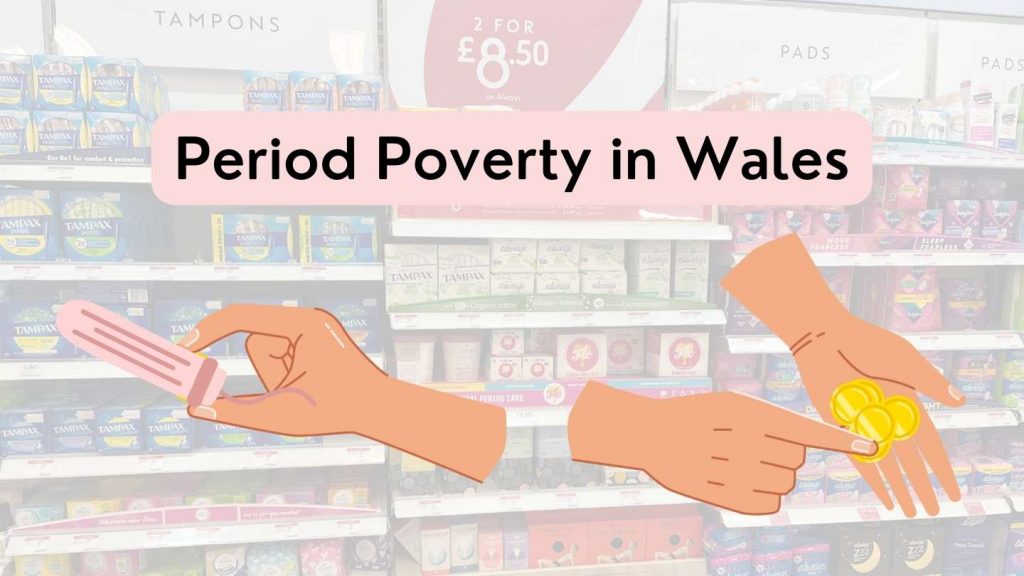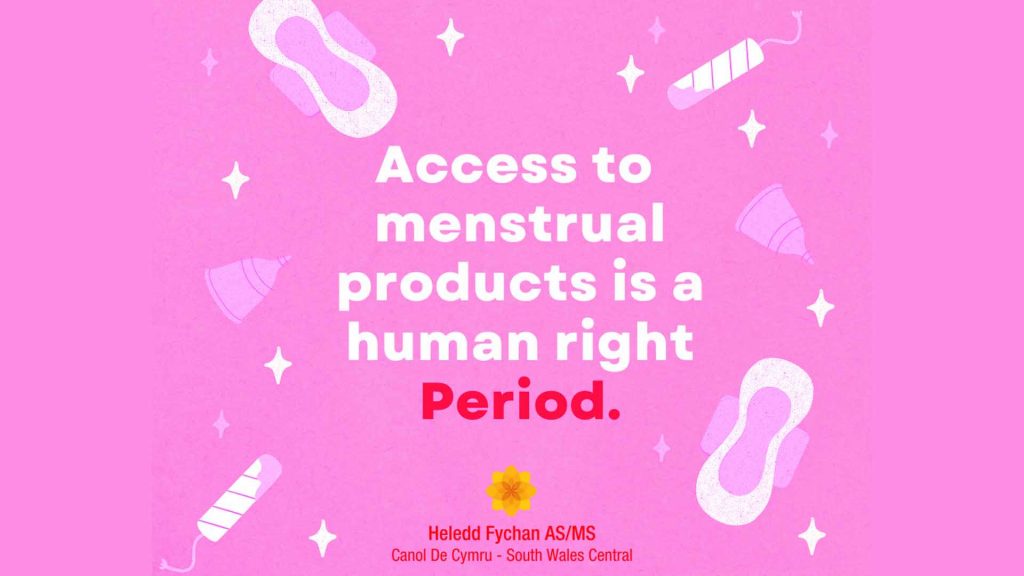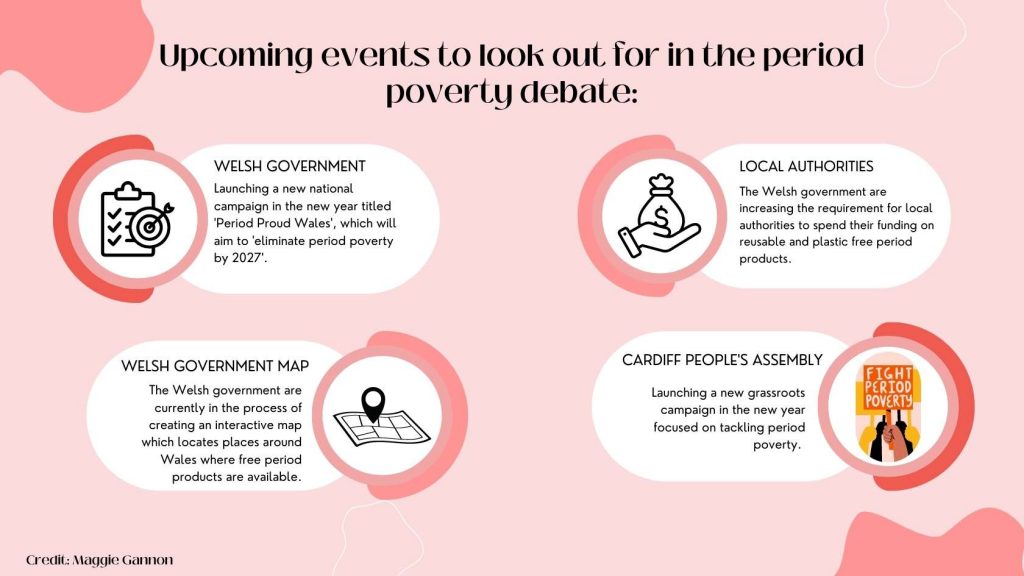A ‘period proud Wales’ is the promise of the government by 2027, but will this really be enough to eradicate period poverty in Wales?

Approximately over 3 million adults in the UK have been affected by hygiene poverty in the last year, according to the Hygiene Bank’s poverty report 2022, with the number only set to rise.
The term hygiene poverty is used by the Hygiene Bank to describe when someone has gone without basic hygiene products or sanitary items like period products because they are unable to afford them. Making period products free and accessible to those that need them has become a big talking point in Wales. Grassroots campaigns and a Welsh MS have recently tried to introduce a new law to do just this.
The Hygiene Bank’s poverty report is the first national study to investigate the effect of hygiene poverty in the UK, with an added focus on how the current cost-of-living crisis is affecting those who are finding themselves on tight budgets.
The report found that “31% of those who identified as women experiencing hygiene poverty said they/their household had gone without period products.” This largely aligns with research from YouGov which stated that “one in eight [are] likely to struggle to afford sanitary products” over the course of the next year.
Period poverty’s definition and its understanding came under close examination in the YouGov research mentioned above, but it is most commonly defined as “being unable to access sanitary products and having a poor knowledge of menstruation often due to financial constraints”, according to Bodyform UK.
It was reported by YouGov that 67% of Britons would support a legislation similar to that of the Scottish government to make sanitary products free and accessible to all that need them.
This is something that Welsh MS Heledd Fychan proposed to the Welsh government on 9 November, but her argument was rejected by the Labour-led Senedd.

Fychan’s campaign to introduce a free period products act in Wales has been fuelled by her view that: “introducing laws to secure changes in attitudes are proven to be much more effective than words and commitments in action plans.” She argues that although the Welsh government has invested in successful campaigns regarding period dignity, the fact that there is no legal obligation for any of their suggestions creates major inconsistencies in who can access period products free of charge in Wales.
Can you imagine the outcry if toilet paper wasn’t easily available in schools or workplaces?
Fychan added: “Can you imagine the outcry if toilet paper wasn’t easily available in schools or workplaces?”
The Welsh government published a Period Dignity Strategic Action Plan last year, and in the recent Senedd debate, the Labour Minister for Social Justice Jane Hutt stated she would be publishing a report in the new year on how the government aims to create a “period proud Wales” by 2027. Adding that improved education on periods and clearer access to where products are available are vital to succeed in this, but that they do not currently see a need for the government to enshrine this in law.
In response to her recent debate in the Senedd, Fychan said she was “very disappointed by the Welsh Government’s response.” Adding that given the law in Scotland was legislated by a Labour MSP, makes the decision even more disappointing.
What’s happening in Wales?
Taboo vs inflation
Molly Fenton, 20, the face of the ‘Love Your Period’ campaign, has worked closely with the Welsh government since 2019 to improve the supply of period products in schools, and encourage people to talk about periods and the reality of having them, in order to try and reduce the stigma that tends to be associated with the topic.
Fenton hoped that these positive conversations around periods were reducing the taboo around asking for products, but the severe increase in demand for products she has seen has meant that they “no longer have enough products to give out.”
A recent study by the Sunday Mirror found that “shrinkflation tactics” have resulted in packs of sanitary products getting smaller whilst their prices have risen. One case found each tampon in a box to be 50% more expensive than its previous price.
Fenton added that these price rises are ultimately resulting in less donations to her campaign, but more people needing the products: “it’s like an all-around panic.”
A spokeswoman for Cardiff People’s Assembly, a cost-of-living crisis campaign said, “Making period products free is an essential part of building a 21st century welfare state.”
This feeling of worry around the cost of period products rising has also been felt by Cardiff’s foodbanks. Emma Shepherd, project manager at Cardiff Foodbank, added: “We’ve definitely seen an increase in demand, as our supply was looking very low in the autumn.” The foodbank also accessed a period poverty grant from Cardiff Council to top up their supplies for the upcoming months.
Fenton is hopeful the Welsh government will follow that of Scotland, but the government and the local councils need pushing from all corners to commit to this.
Fenton was approached a few weeks ago by a girl who admitted to having to use her dirty sock at the end of a school day as her period product. She was unaware that free products were available in her school due to them not being easily available in the toilets and her parents could not buy her sanitary products. The number of adults and their households affected by hygiene poverty in the UK and in Wales is only set to rise, with a new period products law, incidents like these could be prevented.

